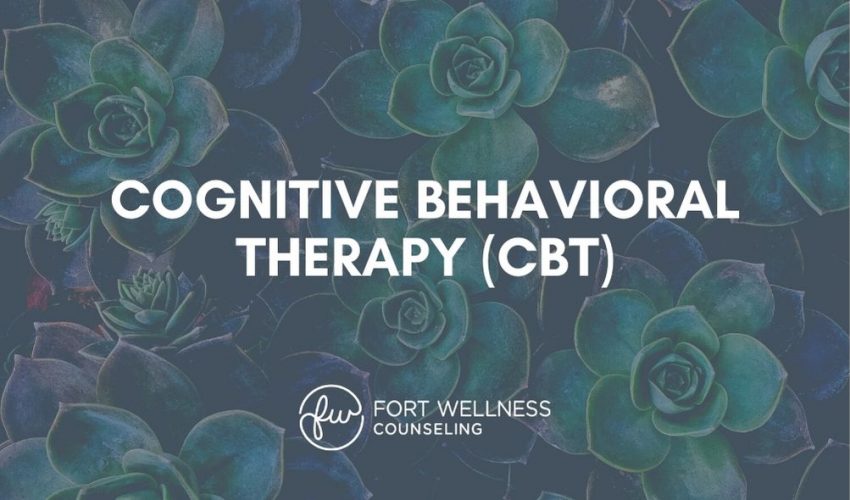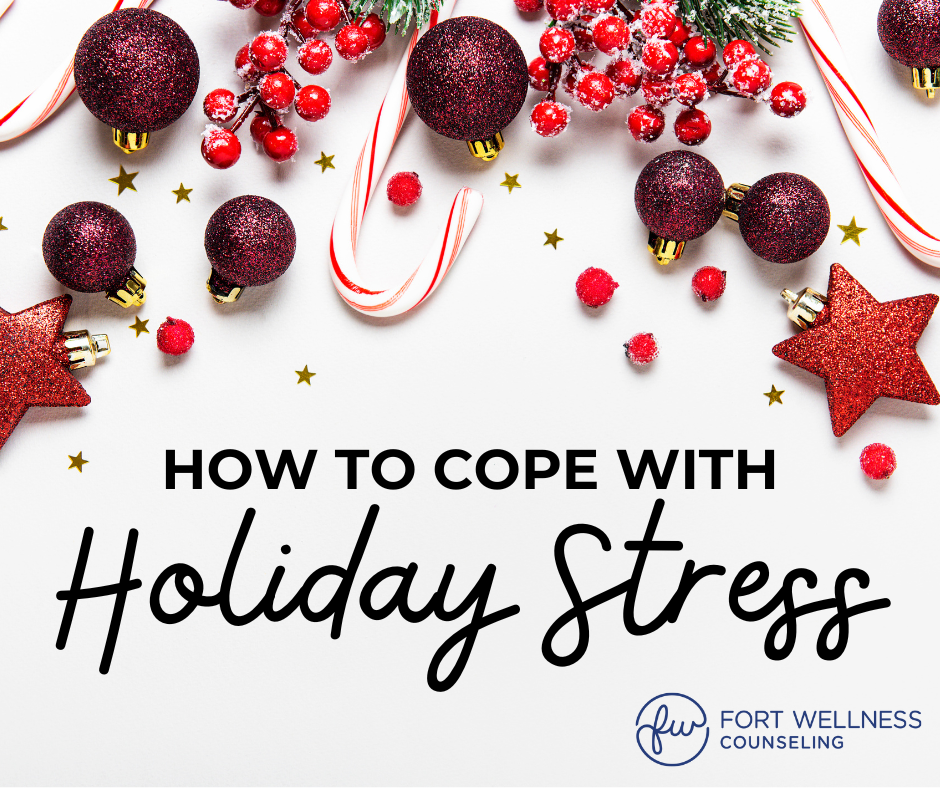
What Is Nature Therapy? (And Why You Should Be Doing It!)
What is Nature Therapy? (And Why You Should Be Doing It!) By: Rane Wallace, MS, LPC, LCDC, SAP Let’s face it: there’s just something about

Cognitive behavioral therapy (CBT) entails working with your thoughts and behaviors to help you change the way you feel and act. If you change the way that you think, then you can change the way you feel. It is a therapeutic model used in therapy by therapist. It’s based on the notion that your thoughts, feelings, physical sensations, and actions are all interconnected. And that negative thoughts and feelings can trap you in a cycle that is detrimental to your mental health and overall well-being.
CBT can target maladaptive behaviors, such as drinking, substance abuse, avoidance, self-harm, anger, etc. This therapeutic modality has a proven effectiveness with wide range of presenting issues, including depression, anxiety, and drug and alcohol problems. It can help you develop better coping skills for anxiety and social skills for everyday life. CBT takes a deep dive into analyzing your thoughts and discovering how much these impact your feelings and actions.
CBT also looks at your underlying belief system. Your core belief system is how you view yourself and the world around you. For instance, a common core belief is, “I’m not good enough.” Belief systems work like a pair of sunglasses. Red sunglasses make the world look red, green makes it look green, etc. If you wear a pair of shades that has, I’m not good enough on them, you will see the world from that framework. CBT can help you in gaining self-awareness about how your previous life experiences have shaped the way you think.
CBT is helpful in therapy because it offers a lot of simple and practical techniques that can help you manage different issues and change thoughts that cause you distress and lead to negative behaviors.
There are a lot of techniques from CBT frequently discussed in therapy that you can apply in your daily life. Below are 6 examples of different techniques from CBT.
Reframing involves shifting negative thoughts towards positive thoughts and replacing one with the other. In situations where you normally think negatively, you will challenge yourself to come up with a positive and alternative way of viewing the situation. For example, if you always believe that things will turn out in the worst way possible, you can come up with alternative, less threatening scenarios. What if the situation resolves favorably? What if things go a more neutral way? Through cognitive reframing, it is possible to shift your view of an event or a situation and make a habit of thinking more positively.
Think of this as playing a VHS tape all the way through. What happens at the end of the movie? This technique involves a thought experiment. When you worry about the outcome of a situation, you are encouraged to think about the logical consequences. If I drink this, then what will happen? If I go to the party and use this substance, what are some of the negative consequences that might happen? This is especially helpful when working with problems such as drugs and alcohol. After all, both of these substances cause you to think about the immediate feeling you get from the substance and not the long-term consequences.
Journaling in CBT involves focusing on your thoughts and the impact that they play on your feelings. You keep a thought record log so you can analyze your thoughts objectively and recognize patterns that can become clear from seeing them on paper. This is especially the case when looking at the negative thoughts that lead to negative emotions. You can journal however you want. The idea is that you log your experiences over time. These logs help to track your thinking patterns that can be worked on while in therapy.
A big problem with anxiety is that it causes a lot of fear and distress. We tend to perceive situations to be a lot worse than they are going to be. In therapy, we call this catastrophizing. Catastrophizing is assuming the worst-case scenario. By scheduling an activity, it can help ensure that you get it done and make it happen. Actively scheduling activities can be helpful in creating healthy habits and provide opportunities to employ different coping skills that you learn while in therapy. We also look at cognitive ways to dispute irrational thoughts and ways to improve self-awareness so that you can catch yourself when you start making a mountain out of a mole hill.
A behavioral experiment involves trying out a belief in the real world to see if it holds up. The idea behind a behavioral experiment is that we often might believe irrational things in a way that limits us. For example, you might think that others will reject you or laugh at you or that you will not be able to do something specific. The experiment pits the belief against reality in a controlled situation. This can lead to lasting changes in our beliefs, emotional states, and behaviors.
Another example is checking in with someone if you think that they are thinking something about you. Ask them if they think whatever it is that you are thinking. More times than not, what they are thinking is far from what you are thinking. We call this mind reading in therapy and it is not helpful! I promise, you cannot read minds and so stop trying!
Exposure refers to a broad set of techniques that involve facing a situation, both external and internal, that generate anxiety and other negative emotions. Exposure can mean visualizing a scary situation happening, approaching something that causes anxiety, or exploring and allowing oneself to feel anxiety as it comes on. This is a central technique for managing irrational fears that should be employed with caution but offers great results for reducing anxiety. In therapy, we utilize exposure to gradually get back into doing things that would normally cause a lot of distress and anxiety.
If you avoid shopping malls, with exposure, we gradually work on submerging you back into the shopping mall in small steps. For instance, go to the mall but just stay in your car in the parking lot for 5 minutes. Next, stay in your car for 10 minutes. Then, walk to the curb and then walk back to your car. And then before you know it, you are back to shopping in the mall like it is the 1990s!
These are only a few of the techniques that are employed in cognitive-behavioral therapy. It’s worth mentioning that there are many different approaches that fall under the CBT umbrella. It’s also not uncommon for CBT to be utilized with other therapeutic modalities, such as Solution Focused Therapy.
If you would like to learn more about cognitive behavioral therapy and how it can assist you in therapy, check out some of the resources listed below.
Therapy can have a lot of benefits. If you are thinking that you should attend therapy, consider reading one of these articles that highlights some of the different benefits of attending therapy with a therapist in Fort Worth and what to expect at your first therapy session at Fort Wellness Counseling. If you are looking for more to read, check out our other helpful blog articles.
Cognitive Behavioral Therapy is just one of the therapeutic modalities that our therapist utilizes at Fort Wellness Counseling in Fort Worth, TX. Learn more about the counseling and therapy services we provide at Fort Wellness Counseling.

What is Nature Therapy? (And Why You Should Be Doing It!) By: Rane Wallace, MS, LPC, LCDC, SAP Let’s face it: there’s just something about

The Benefits of Virtual Therapy in Texas By: Rane Wallace, MS, LPC, LCDC, SAP Technology is changing everything, and healthcare is no different! Thanks to

How to Get Over a Breakup By: Rane Wallace, MS, LPC, LCDC, SAP Breaking up with a romantic partner is painful – no matter the reason

How to Set New Year’s Resolutions By: Rane Wallace, MS, LPC, LCDC, SAP How to Set New Year’s Resolutions Setting goals gives us a sense

How to Cope with Holiday Stress By: Rane Wallace, MS, LPC, LCDC, SAP Say No to Prevent Burnout There are an abundance of obligations that

Trauma Therapy in Fort Worth: Types, Benefits & More By: Rane Wallace, MS, LPC, LCDC, SAP Believe it or not, an estimated 60% of men

How to Communicate Better in Relationships By: Rane Wallace, MS, LPC, LCDC, SAP Whether with coworkers or your significant other, the ability to communicate effectively

How to Prevent Seasonal Affective Disorder (SAD) By: Rane Wallace, MS, LPC, LCDC, SAP If you’re struggling with winter blues, know you’re not alone. SAD

What is a Functioning Alcoholic? By: Rane Wallace, MS, LPC, LCDC, SAP When someone is deemed a ‘high-functioning alcoholic,’ they’re able to carry out daily

How to Help Yourself – And Others – with Suicidal Ideation By: Rane Wallace, MS, LPC, LCDC, SAP September is Suicide Awareness Month. And while

32 Questions to Strengthen Your Relationship By: Rane Wallace, MS, LPC, LCDC, SAP When was the last time you had a meaningful conversation with your

The Fawn Response: How Trauma Can Lead to People Pleasing By: Rane Wallace, MS, LPC, LCDC, SAP Do you often find yourself putting the needs

How to Overcome ‘Hangxiety’ (Post-Drinking Anxiety) By: Rane Wallace, MS, LPC, LCDC, SAP Thought the consequences of drinking heavily were merely physical? Unfortunately, you’ll have

What is Box Breathing? Plus Tips for Beginners By: Rane Wallace, MS, LPC, LCDC, SAP Ever heard of box breathing? This popular relaxation technique involves

Do Mindfulness Exercises for Anxiety Work? By: Rane Wallace, MS, LPC, LCDC, SAP Do mindfulness exercises for anxiety work? If you (or people in your

What is Trauma Bonding? 4 Warning Signs By: Rane Wallace, MS, LPC, LCDC, SAP If you’ve ever been in an abusive relationship and felt bonded

Why Do We Cry? 4 Reasons and Crying Benefits By: Rane Wallace, MS, LPC, LCDC, SAP There’s no getting around it – crying is part

What Is Habit Stacking? (And How to Do It) By: Rane Wallace, MS, LPC, LCDC, SAP Supporting our mental health is one of those goals

5 Tips for Living with Someone with OCD By: Rane Wallace, MS, LPC, LCDC, SAP While living with OCD (obsessive-compulsive disorder) can be demanding, living

What is Assertive Communication? By: Rane Wallace, MS, LPC, LCDC, SAP So, what is assertive communication? Well, in a nutshell, this communication style aims to

PTSD Counseling in Fort Worth: Proven Coping Strategies By: Rane Wallace, MS, LPC, LCDC, SAP For those who didn’t already know, post-traumatic stress disorder (PTSD)

Brainspotting vs. EMDR: What’s the Difference? By: Rane Wallace, MS, LPC, LCDC, SAP According to the National Council for Mental Wellbeing, 70% of American adults

Mindfulness Exercises to Strengthen Your Recovery By: Rane Wallace, MS, LPC, LCDC, SAP Are you recovering from alcohol and/or substance abuse? Self-improvement is a life-long

How to Find a Counselor in Fort Worth By: Rane Wallace, MS, LPC, LCDC, SAP Are you considering therapy? If so, finding a counselor in

How To Not Be Codependent In A Relationship By: Rane Wallace, MS, LPC, LCDC, SAP Wondering how to not be codependent in a relationship? Sometimes

What is Parental Anxiety? Coping Tips from a Therapist By: Rane Wallace, MS, LPC, LCDC, SAP Every parent wants to shield their child from danger

What is EMDR Therapy? By: Rane Wallace, MS, LPC, LCDC, SAP Ever heard of eye movement desensitization and reprocessing therapy? More commonly known as EMDR,

8 Proven Tips to Sleep Better at Night (and Improve Your Mental Health) By: Rane Wallace, MS, LPC, LCDC, SAP Struggling with restless nights and

How to Have a Healthy Relationship with Social Media By: Rane Wallace, MS, LPC, LCDC, SAP In today’s world, there’s no escaping the presence of

What Is The Goal of Psychotherapy? By: Rane Wallace, MS, LPC, LCDC, SAP Have you been considering psychotherapy? The start of a new year is

What is Brainspotting Therapy? By: Rane Wallace, MS, LPC, LCDC, SAP Brainspotting therapy is a kind of alternative therapy that is gaining immense popularity in

Healing After an Affair: 7 Strategies for Affair Recovery Rane Wallace, MS, LPC, LCDC, SAP It doesn’t matter who you are – working through an

12 Benefits of Gratitude By: Rane Wallace, LPC, LCDC, SAP With Thanksgiving coming to a close, we thought it was fitting to explore the link

How to Avoid Seasonal Depression By: Rane Wallace, MS, LPC, LCDC, SAP Daylight savings has officially come and gone. For most of us, this means

Top 10 Ways for How To Keep Your Relationship Strong and Healthy By: Rane Wallace, MS, LPC, LCDC, SAP Relationships can be tricky whether you’re

10 Best Ways to Calm Yourself Down Rane Wallace, MS, LPC, LCDC, SAP When we’re navigating social media, complex relationships, and performance pressures, it’s easy

How to Set Boundaries Between Family Members By: Rane Wallace, MS, LPC, LCDC, SAP Learning how to set boundaries between family members is imperative. From

Understanding the Quarter-Life Crisis By: Rane Wallace, MS, LPC, LCDC, SAP You’ve probably heard of the ominous mid-life crisis, right? Having been stereotyped in plenty

Am I An Alcoholic? 6 Warning Signs of Alcoholism By: Rane Wallace, MS, LPC, LCDC, SAP Be honest, what comes to mind when you think

Top Coping Skills for Anxiety and Stress Management By: Rane Wallace, MS, LPC, LCDC, SAP Being well into our second year of a global pandemic,

5 Self-Care Journaling Prompts for Mental Health By: Rane Wallace, MS, LPC, LCDC, SAP In the world we live in today, mental health struggles are

What to Do While You Wait for Counseling By: Rane Wallace, MS, LPC, LCDC, SAP From problems with anxiety to depression to addiction problems, there

What is Postpartum Depression? (And How to Overcome It) By: Rane Wallace, MS, LPC, LCDC, SAP Have you or a loved one recently had a

The Effects of Stress on Your Body By: Rane Wallace, MS, LPC, LCDC, SAP Are you feeling stressed out? Overwhelmed? Increasingly anxious? If so, you

How to Stop a Panic Attack: 9 Strategies By: Rane Wallace, MS, LPC, LCDC, SAP If you’ve experienced a panic attack, then you know how